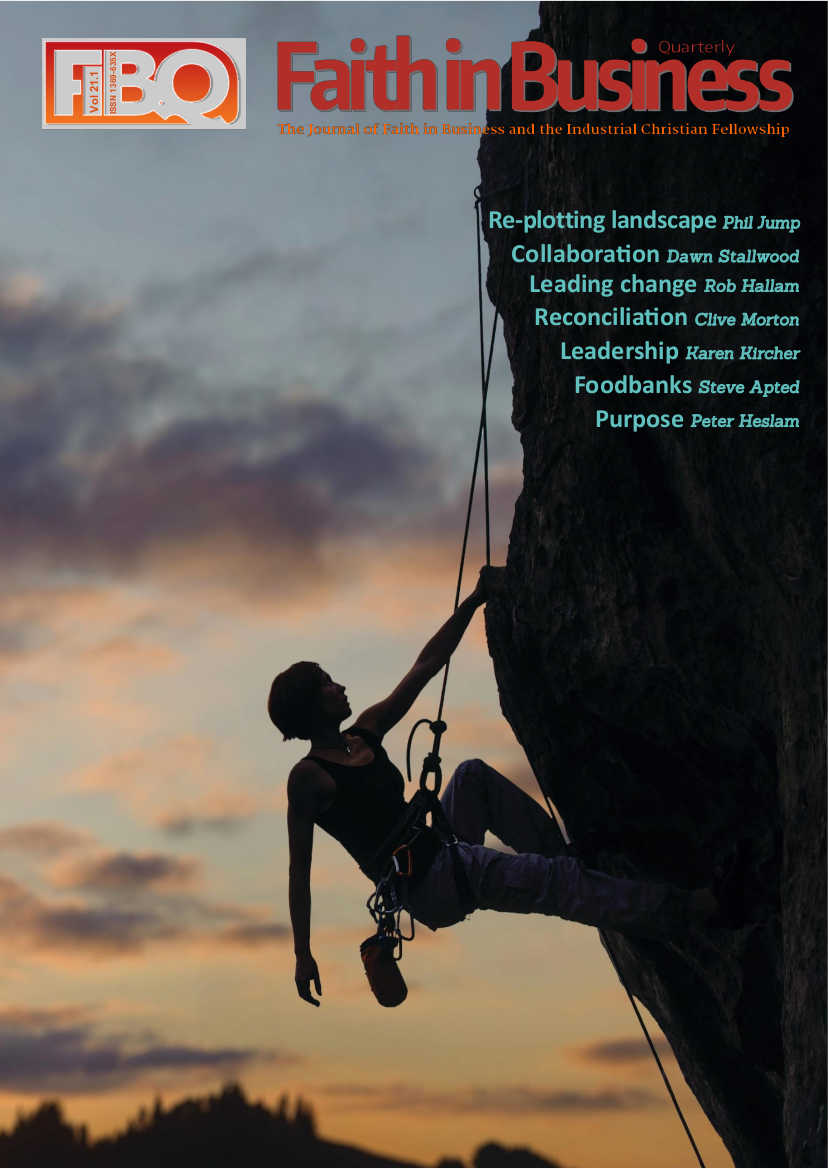Description
In this issue…
Much of this FiBQ issue is about leadership, reflecting on the human values of leadership in the light of Covid-19.
The thinking starts with Phil Jump’s Re-plotting the landscape. What usefulness does the Church have when so much goodness and value during the pandemic is demonstrated outside specifically Christian faith? Our other regular contributor Peter Heslam continues his series on Purpose in Business by asking What is Business For?
Both reflections ask us to think through what value-added there is in being ‘christian’ in the workplace during this time of crisis. Many of the articles can be seen as a response to Phil’s and Peter’s questions.
Clive Morton’s autobiographical essay articulates a lifetime of practising the Christian values of reconciliation in large-scale construction and engineering firms, and in a divided NHS.
Rob Hallam tells us about a defining moment in his career. A senior executive, in humility and sincerity, exposed to a large group of his employees his own weakness in leading a business heading for major disruption.
Dawn Stallwood and Karen Kircher redefine what leadership truly is. Dawn takes up Phil’s challenge of relevance, by finding within the secular business management principles of ISO 44001 a deeply Christian framework to practise the fruits of the Spirit from Galatians 5.22-23. Karen argues for ‘Kingdom-style leadership in the workplace’ by contrasting Christian values with the pride, fear and self-advancement so often prevalent among middle management and in the boardroom.
These four articles testify how valid and vital are the Jesus-values of listening, love and reconciliation. As Clive points out, work practices from other cultures, such as Japanese management practices in Gateshead, can be as much – or more – ‘christian’ than are those from traditional Western culture.
So, responding to Phil’s question, what have the institutions of the Church actually contributed during the pandemic? Steve Apted’s profile of the Salvation Army in the pandemic shows us how mainstream Christian ministry can still be highly influential during this time of crisis. All is not lost, if and when the Church relates directly with people in their need.
Three books are reviewed in this issue. Richard Higginson reviews two Church of England publications: Calling All God’s People and Kingdom Calling. He finds the former, directed to all Christians and encapsulated with ‘the command to Go’, the more compelling. Ken Dickson reviews Grant Smith’s The Accidental Social Entrepreneur, a personal testimony that God can be trusted in all situations, even when operating in a cross-cultural environment where norms and practices may be unfamiliar.
Finally, do look at the advertisement at the bottom of page 17, and place your order for these two books, at the special price indicated!
The Editors




